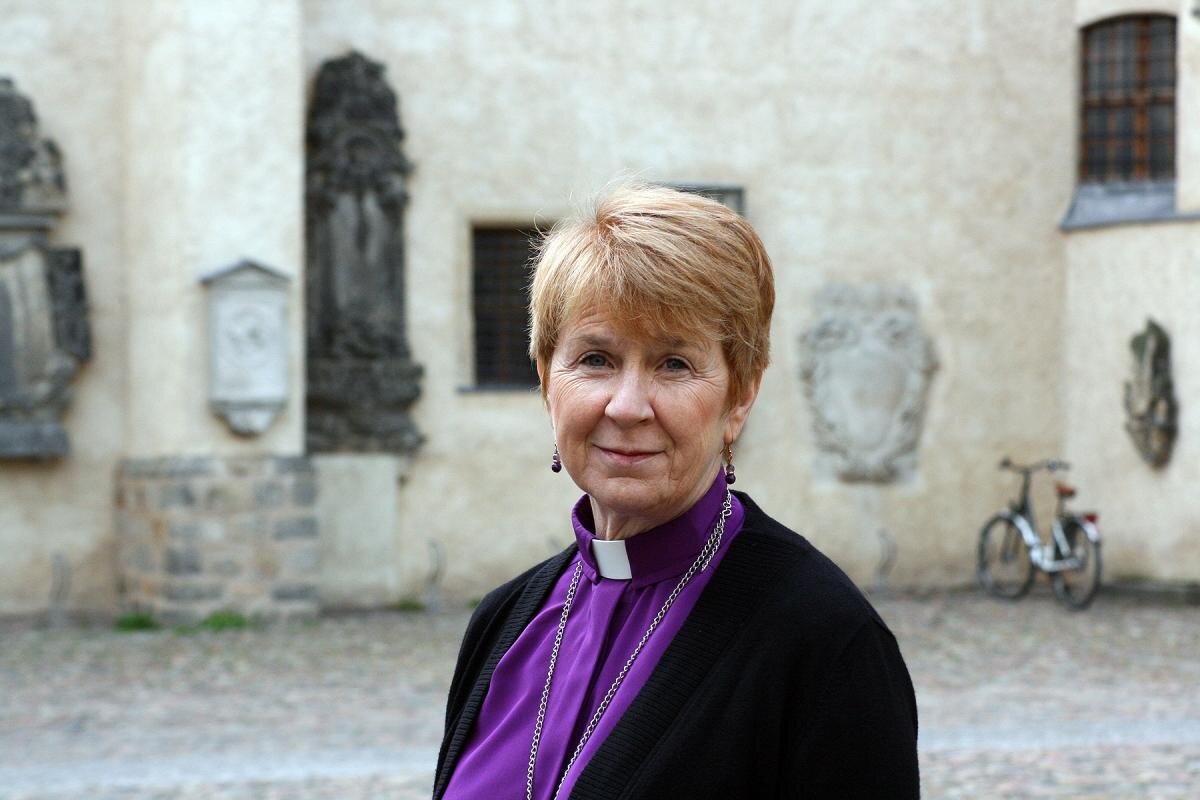Bishop Hutterer: To care for creation, follow your love
Photo by Patrice Bouchard on Unsplash
“But ask the animals, and they will teach you;
the birds of the air, and they will tell you;
ask the plants of the earth, and they will teach you;
and the fish of the sea will declare to you.
Who among all these does not know
that the hand of the Lord has done this?
In his hand is the life of every living thing
and the breath of every human being.”
This Earth Day, I write in celebration of God’s creation.
I am an early bird. I enjoy the pre-dawn quiet. In our synod, this time of year makes for glorious sunrises. We cherish the cool of the morning before the upcoming heat of the day, and the oncoming swelter of summer.
I especially enjoy the emergence of birds and their song as darkness gives way to light. Hummingbirds give me delight. The flash of a red cardinal is also a joy, but I see them only occasionally in the desert.
By far, my favorite bird is the scarlet tanager. Their breeding ground is in the eastern United States, where I was blessed with a few glimpses of the bright and exotic red bird with black wings. I can vividly recall those moments.
The scarlet tanager, like so many species, are impacted by humankind’s increasing presence on our planet. Some of these impacts are literal, as many birds are killed by collisions with towers, turbines, buildings, and cars. Scarlet tanagers need large areas of intact woodlands to breed, and suffer from habitat fragmentation as forests are divided by development. All in all, though, the scarlet tanager is a plentiful species worldwide.
With technology, we have a far better understanding of birds than ever before. Our nationwide Doppler radar system not only provides weather forecasting, but gives us a detailed picture of bird migrations and populations. The birding community, using mobile apps like eBird, provides data worldwide available for all to use.
The information we hear about our changing world can be so frightening that we want to ignore it. Since 1970, the breeding bird population in North America has dropped by 3 billion. That’s more than one in four birds in our lifetime, mostly because of habitat loss.
I feel we should not ignore those facts, and we should find ways to step into that information with hope and faith. Inside that depressing news of bird loss is the good news that some populations are thriving. Populations for hawks and eagles have tripled since 1970, thanks to regulations on DDT and raptor hunting.
Waterfowl populations are up 50% since 1950, thanks to organizations like Ducks Unlimited. We can learn a lot from Ducks Unlimited (DU). They take a continent-wide view of the problem while working locally on specific projects. DU educates farmers, ranchers, and landowners as well as leaders in government and conservation. They build political will for policy change and find win/win solutions accepted by all parties involved.
It sounds a lot like what we try to do in the ELCA.
In a broken world, where we are called to do God’s work with our hands, it is difficult to know where to start. We can be paralyzed with a sense of futility. On Earth Day, as we consider a warming planet and the increasing danger for all of God’s creatures, it can seem silly to think our one small life can make a difference.
There can be two camps of thought in addressing climate change and care for creation. The first is that we work through individual action, doing things like reducing, reusing, and recycling in our personal lives, or painting our roofs white. The second camp thinks that individual actions are so small as to be trivial, that only systemic change will help.
As ELCA members, we are blessed to know both are needed. Taking the issue of hunger as an example, while we are blessed to be able to share food with someone in our neighborhood as individuals or through church food pantries, we also know our nationwide organization is providing relief on a global scale and also advocating for change in policy on a national and state level.
As church together, we are blessed to truly understand the work to be done by getting our hands dirty. And we are blessed with a deeper understanding of the world’s problems as we pray.
This Earth Day, I encourage you to approach the work to be done with joy. Make a list of the things you enjoy doing, even if it seems unrelated to care for creation and climate change. Take time to pray in gratitude for those joys. Then be open to see how doing those things can be done—in perhaps new and fresh ways—to help God’s creation heal and thrive.
I feel this is the way of doing the life-long, life-sustaining work before us: with joy, with our unique God-given talents and calling, and with the knowledge we are in the midst of work that spans generations.
Praise to you, Lord Jesus Christ, who in your self-emptying love gathered up and reconciled all creation to the Father. Innumerable galaxies of the heavens worship you. Creatures that grace the earth rejoice in you. All those in the deepest seas bow to you in adoration. As with them we give you praise, grant that we may cherish the earth, our home, and live in harmony with this good creation, for you live and reign with the Father and the Holy Spirit, one God, now and forever. Amen.
Grateful for the ways we talk together,
The Rev. Deborah K. Hutterer
Bishop
Grand Canyon Synod of the ELCA



